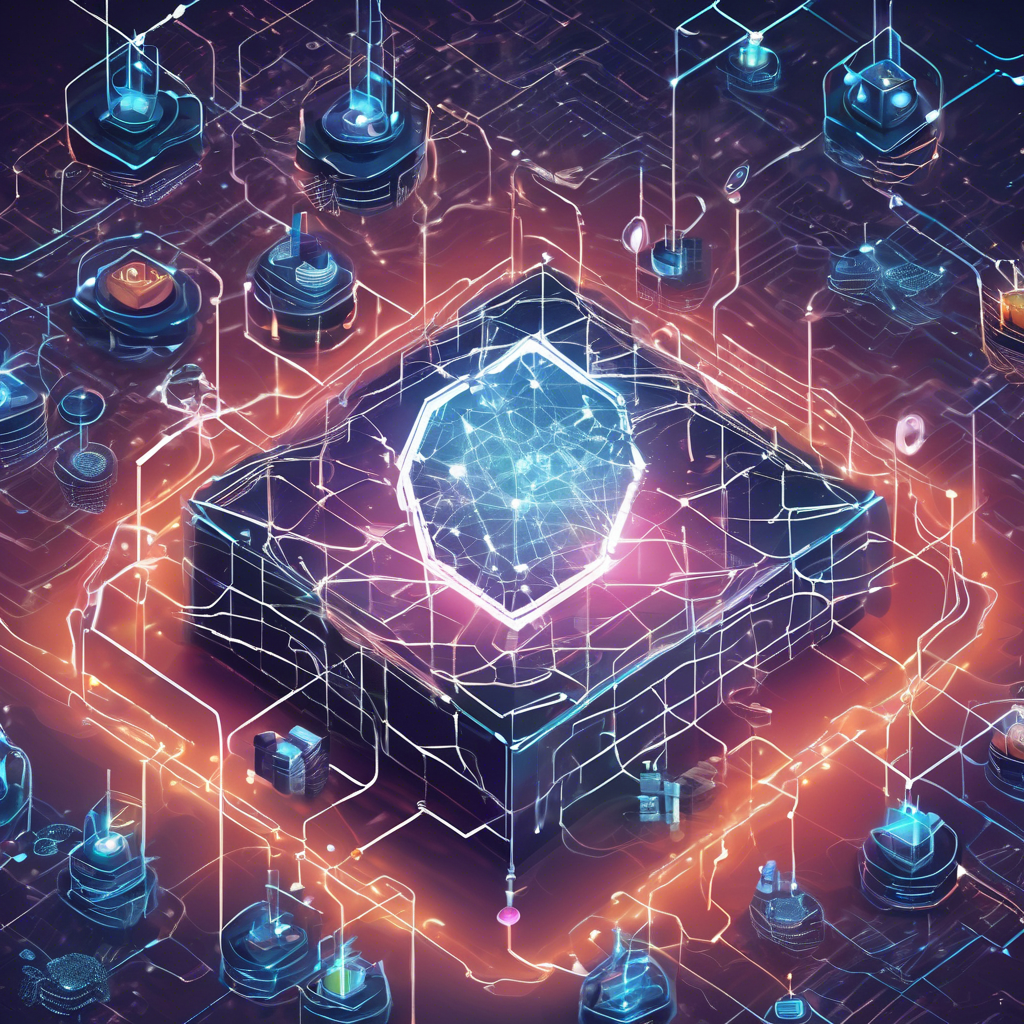Navigating the Future of Blockchain Security: AI and Quantum Computing Threats

Brief news summary
Blockchain technology, renowned for enabling secure digital transactions and decentralized applications, is encountering new vulnerabilities due to threats from AI and quantum computing. While traditional cryptography has effectively addressed many cyber risks, the rise of AI-driven attacks—particularly those utilizing deep learning—complicates security measures. These developments threaten smart contracts and facilitate advanced phishing techniques. Concurrently, quantum computing poses a serious risk to conventional encryption methods like RSA and ECC, with algorithms such as Shor's and Grover's capable of undermining them. To confront these issues, a comprehensive strategic response is imperative. Leveraging AI for defensive tactics, including anomaly detection systems, can enhance the identification of quantum threats and assess smart contract weaknesses. Furthermore, developers are creating cryptographic algorithms designed to be resilient against quantum challenges, thereby strengthening blockchain security. Consequently, there is an urgent need for swift adoption of post-quantum cryptographic standards, enhanced AI-driven security measures, and proactive defense strategies. The convergence of AI and quantum computing is transforming the blockchain security landscape, emphasizing the necessity for adaptive approaches in an ever-changing cybersecurity context.Blockchain technology has been praised for its security in financial transactions, decentralized applications (dApps), and data integrity due to its cryptographic basis. However, as technologies develop, new threats emerge, particularly from Artificial Intelligence (AI) and Quantum Computing. The clash between AI attacks and quantum threats presents a significant challenge for blockchain security. While AI enhances hacking methods, quantum computing endangers traditional cryptographic algorithms vital for securing blockchain transactions. **AI-Powered Blockchain Attacks** AI, while advancing cybersecurity, equips hackers with sophisticated tools. Key AI-driven threats to blockchain include: - **Deep Learning Smart Contract Exploits**: AI models can quickly identify and exploit vulnerabilities in smart contracts. - **AI-Generated Phishing Attacks**: These use AI to craft convincing social engineering attacks targeting sensitive data. - **Automated 51% Attacks**: AI can pinpoint weak points in mining power to potentially control the majority needed for double-spending. - **AI-Driven Sybil and DDoS Attacks**: AI can automate the creation of fake nodes or launch DDoS attacks to disrupt the network. **Quantum Computing Threats** Quantum computing poses a profound, long-term risk by potentially breaking key cryptographic algorithms like RSA and ECC, as well as compromising hashing functions like SHA-256. The main quantum threats include: - **Shor’s Algorithm**: This could render traditional encryption ineffective by factoring large numbers. - **Grover’s Algorithm**: It could significantly speed up hash-breaking processes, threatening the integrity of blockchain transactions. - **Quantum Ledger Manipulation**: Quantum adversaries could reverse transactions, undermining blockchain immutability. **AI vs. Quantum Attacks: Fortifying Blockchain Security** Although AI introduces new vulnerabilities, it can also serve as a defensive tool against quantum threats, as follows: 1.
**AI-Driven Quantum Threat Detection**: AI can identify unusual blockchain activities indicative of quantum attacks in real-time. 2. **Smart Contract Auditing**: AI can help developers detect vulnerabilities pre-deployment and incorporate post-quantum security measures. 3. **Quantum-Resistant Cryptography**: Developers are creating algorithms (e. g. , lattice-based and multivariate polynomial cryptography) that are resilient to quantum decryption, with AI aiding in their efficient implementation. 4. **Enhanced Consensus Mechanisms**: AI could improve existing consensus models by detecting compromised nodes and adapting security protocols to counter quantum attacks. 5. **Hybrid Security Frameworks**: Research is ongoing to merge AI and quantum cryptography, creating a robust security solution for blockchain networks. **Preparing for the Future** As the landscape shifts with quantum advancements, several steps are crucial: - **Adoption of Post-Quantum Cryptography**: Blockchain networks should implement hybrid models that combine traditional and quantum-resistant algorithms. - **Integration of AI in Anomaly Detection**: AI tools should be deployed alongside blockchain analytics to identify quantum decryption attempts. - **Exploration of Advanced Cryptographic Techniques**: Methods like homomorphic encryption and secure multi-party computation can protect against AI-driven hacks. - **Development of Quantum-Secure Protocols**: New architectures must incorporate quantum-secure signatures and AI-driven self-healing protocols. The conflict between AI and Quantum attacks is becoming a reality, posing challenges but also opportunities for blockchain security enhancement. Transitioning to post-quantum cryptography and integrating AI analytics will be essential in safeguarding blockchain technology in a future dominated by quantum computing.
Watch video about
Navigating the Future of Blockchain Security: AI and Quantum Computing Threats
Try our premium solution and start getting clients — at no cost to you

I'm your Content Creator.
Let’s make a post or video and publish it on any social media — ready?
Hot news

AI Bots Reshaping Online Discovery and Brand Visi…
A comprehensive new study by Hostinger has revealed the rising impact of artificial intelligence on the digital landscape, especially in the realm of online content discovery.

AI-Generated Video Content: A New Era in Marketing
In the fast-changing realm of digital marketing, businesses are increasingly leveraging artificial intelligence (AI) to improve their advertising efforts.

Simple AI Raises $14M Seed Round to Scale Voice A…
Key Takeaways Simple AI has raised a $14 million seed round led by First Harmonic, with participation from Y Combinator, Massive Tech Ventures, and True Ventures

OpenAI's 'Stargate' Project: A $400 Billion AI Da…
OpenAI, in partnership with Oracle and SoftBank, has unveiled the ambitious 'Stargate' project, a $400 billion initiative aimed at vastly expanding AI infrastructure.

Amazon's Project Rainier: A $11 Billion AI Data C…
Amazon has launched a major initiative called Project Rainier, centered on building a vast $11 billion AI data center across a 1,200-acre site in Indiana.

G2’s 2026 Report: The State of AI Sales Intellige…
Prospecting has evolved into primarily an attention management challenge rather than a lack of leads.

AI in SEO: Enhancing User Experience and Engageme…
Artificial intelligence (AI) is swiftly reshaping digital marketing, especially in the field of search engine optimization (SEO).
AI Company
Launch your AI-powered team to automate Marketing, Sales & Growth

and get clients on autopilot — from social media and search engines. No ads needed
Begin getting your first leads today








